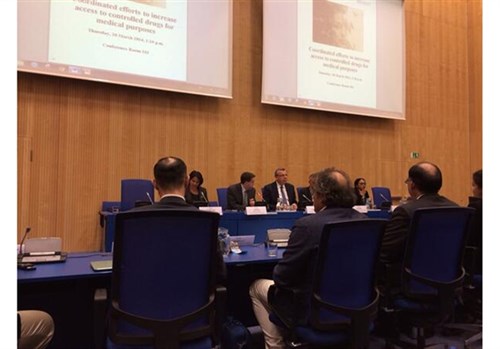Palliative care advocacy at CND Vienna
Palliative care advocates have been working hard to ensure essential medicines including morphine are readily available for treating pain.
25 Mar 2014Dr Stephen Connor, senior fellow to the Worldwide Palliative Care Alliance, reports on advocacy activities at the meeting of the Commission on Narcotic Drugs in Vienna last week.
Advocacy is like farming. You plant seeds and it takes a long time for them to grow and eventually bear fruit. It takes many people to farm effectively. So it is with palliative care advocacy. Years ago palliative care advocates began to question why, when it came to international drug control, all the emphasis was on limiting access and virtually no attention was being paid to ensuring that essential medicines were available for medical use.

The ‘war on drugs’ has grown exponentially over the past decades, while over 80% of the world’s people do not have access to pain relief when they need it most. To change this situation requires that we change the mindset of a great many people that are deeply concerned with the misuse of medicines. Last week was the annual meeting of the UN’s Commission on Narcotic Drugs (CND). The CND is the global body that sets policy for how controlled substances are made available. Its mandate comes from UN treaties including the initial 1961 ‘Single Convention on Narcotic Drugs’.
Share this on: